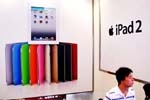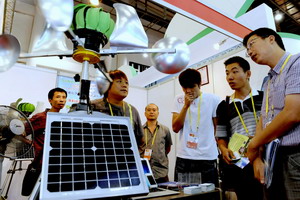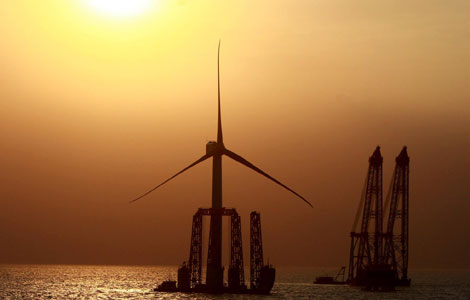ICBC signs MOU with UAE's Kizad industrial zone
Updated: 2011-09-09 07:48
By Li Jiabao (China Daily)
|
|||||||||||
XIAMEN - Khalifa Industrial Zone Abu Dhabi (Kizad) in the United Arab Emirates (UAE) signed a Memorandum of Understanding (MOU) with Industrial and Commercial Bank of China Ltd (ICBC) on Sept 8 to provide financial services for Chinese investors in the zone and promote bilateral trade.
"The MOU between ICBC and Kizad is a project-by-project cooperation. The bank will provide financial services for Chinese investors in the industrial zone. There is no limitation on the volume of the project," Khaled S. A. Salmeen, executive vice-president of Kizad, told China Daily during an exclusive interview on Sept 7.
Dong Chao'en, a director at the Abu Dhabi branch of ICBC, said that the MOU will provide financial services for Chinese companies in the industrial zone including establishing accounts, settlements and financing.
Kizad lies between Abu Dhabi and the Port of Dubai with an area of 417 square kilometers. Area A, 51 square kilometers, will be completed in September 2012. The zone will be the world's biggest industrial zone after fully completed, according to Alexander Haex, acting vice-president of business development of Kizad.
"Area A is close to a deep water port and will be a center for steel, aluminum and medicine," he said. "Eighty-four percent of the infrastructure has been completed, and the finance cooperation with ICBC is the 'software' of the industrial zone."
Chinese investors are showing an interest in the projects in the industrial zone. Kizad met 50 Chinese investors in June in Tianjin for the first time and is in talks with some of them.
"At present we have not signed any agreements with Chinese companies, although we have a lot of applications for projects from Chinese investors. A number of Chinese companies are looking at projects in the fields of aluminum, steel, logistics and warehouses. It usually takes six to nine months for them to decide on the investments," said Salmeen.
Kizad is open to investments from South Korea, India and China, the UK, Germany and the US.
"We treat investors from these six countries equally. We give them zero customs duty. We take no tax on the income and we give them 100 percent ownership of companies. We provide them with one-stop services," said Salmeen.
Indian investors focus on medicine, chemical and petrochemicals.
Kizad, which will account for 15 percent of Abu Dhabi's economy by 2030, will play an important role in bilateral trade between China and UAE.
"The industrial zone has a very big warehouse, and China can use it as a transferring center and distribute exported goods to other countries in the region," Haex said.
China is the UAE's second-largest trade partner, while the UAE is China's largest export market in the Middle East. The non-oil trade volume between the two reached $12.2 billion in 2010.
"Abu Dhabi is very stable. Because of the political unrest in the region, we have many applications come to Kizad which used to go to other areas," said Salmeen.
Related Stories
ICBC Leasing to focus on RMB settlements 2011-09-06 10:25
ICBC stays on overseas expansion track 2011-08-26 09:25
ICBC acquires South American Bank 2011-08-06 09:49
UAE looks to lure Chinese companies 2011-06-07 13:19
China's trade surplus falls to 1.44% of GDP in H1 2011-08-25 09:14
- ICBC signs MOU with UAE's Kizad industrial zone
- China's Lashou planning US IPO
- China's inflation eases to 6.2% in Aug
- Nike admits to false advertising
- Yuan will be fully convertible by 2015
- Shanghai to build world's biggest expo center
- China launches temporary cotton reserve
- Monetary policy near inflection point













